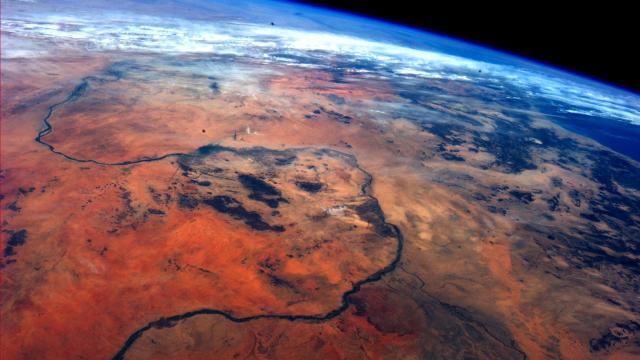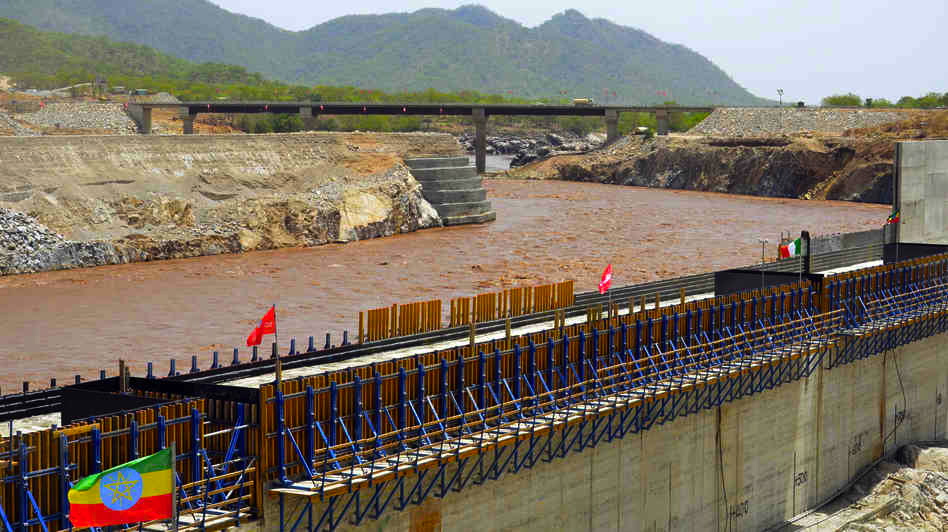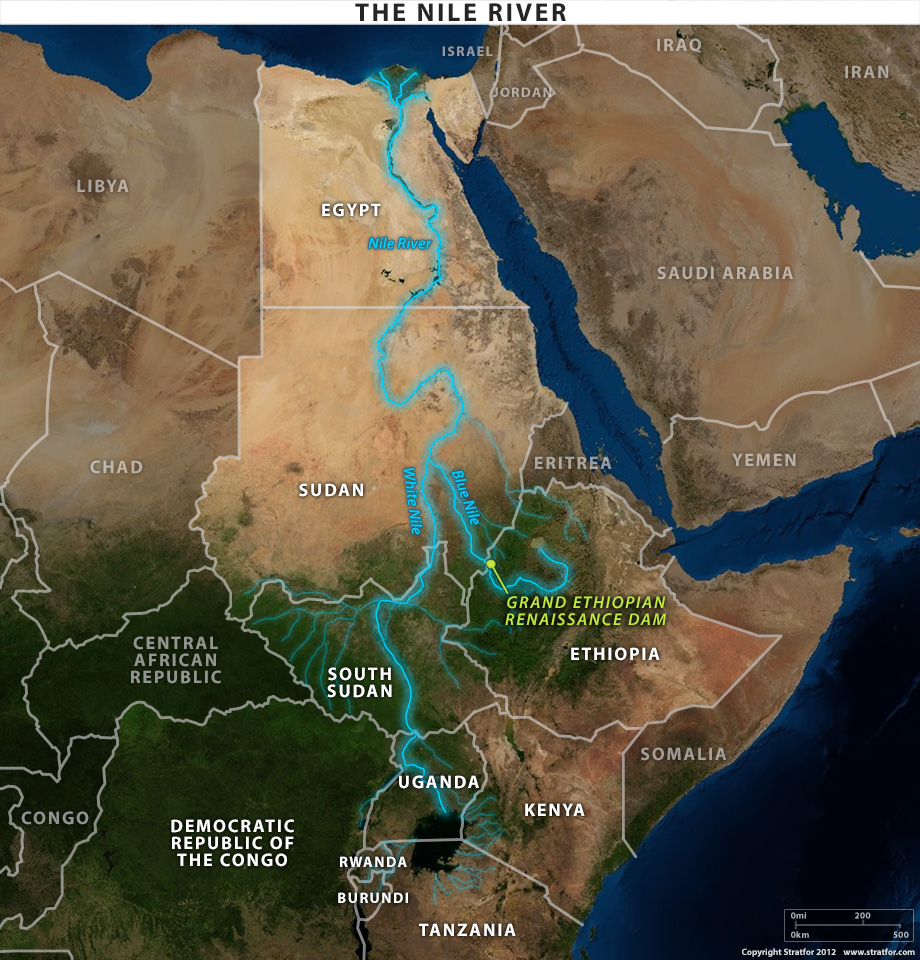
For years, the battle for water along the Nile River has remained a contentious issue, with countries jockeying for what they perceive as equal rights under colonial-era treaties that delivered the lion’s share of water wealth to Egypt and Sudan. More recently, Ethiopia has become the leader of the southern movement in demanding a more equitable and modern treaty over water consumption levels along the Nile River Basin, but Egypt remains obstinate in the face of such “threats.”
While Ethiopia continues to move forward on a massive dam project, the Renaissance Dam, Egypt is fighting back with legislation of its own to guarantee that its water share is not usurped by the construction project in Ethiopia. Last month, the Egyptian government – and military – passed a series of measures that would cement Egypt’s water rights over the Nile River based on British-brokered treaties nearly a century ago.
The Egyptian Ministry of Water Resources and Irrigation told Occupy.com that the measures “are still being worked out completely and we hope to have a comprehensive set of arrangements in case other countries want to break any previous treaties.”
Those could be battle cries, according to one Ethiopian foreign ministry official, who said that “Ethiopia has repeatedly pointed out that the dam project will not cut into any of Egypt’s water consumption. Citing a 2012 report from the Nile Basin Initiative (NBI), which supported the Ethiopian government’s claims that Egypt would not be directly affected by the dam, the official added: "They don’t believe us or the reports out there.”
Even the international community, including major aid and donor organizations, have called on Addis Ababa to end its dam project before completion in order to “focus on other more pertinent” issues, as the International Monetary Fund called them. A leading World Bank official who has participated in numerous Nile River conferences over the past decade spoke on condition of anonymity and said that the major contention of international organizations is that the conflict has nothing to do with Ethiopia.
“Organizations, especially those who give funding to the Nile River and development projects, see Egypt as a key country in the region, especially with Israel so close," said the Ethiopian official. "Therefore, we see that the international community would rather abide by archaic and outdated treaties in order to have Egypt supported and happy, as opposed to supporting a country’s right to develop their land.”
New Egyptian legislation, which has not yet been made formal while the country faces continued violence and turmoil, is once again pitting Egypt against Ethiopia in what has until now been only a war of words. However, late last year, Wikileaks released documents revealing that Egypt and Sudan had been planning to attack the dam project in order to “protect" their rights over Nile water based on colonial-era treaties.
In documents revealed by Wikileaks, the Egyptian and Sudanese governments appeared ready to develop a launching pad that could defend against an attack by Egypt against the dam. Wikileaks leaked files allegedly from the Texas-based global intelligence company, Stratfor, which quoted an anonymous “high-level Egyptian source" reporting the Egyptian ambassador to Lebanon saying, in 2010, that Egypt “would do anything to prevent the secession of South Sudan because of the political implications it will have for Egypt's access to the Nile."
Egypt says that without its access to water, the country could face severe shortages and possible nationwide upheaval. In April of 2012, Egypt’s former Minister of Water Resources and Irrigation, Hisham Qandeel, reiterated Egypt’s firm stance rejecting the Entebbe Agreement unless the water security of Egypt and the Sudan were achieved. This has left water issues in the region in a tenuous position, with the future of sustainability and cooperation in limbo.
Today, the new legislation aims to codify that “water security” in the face of any international tests over Egypt’s consumption and access to the world’s longest river. Water management issues are considered a matter of national security in Egypt.
“Egypt believes that cooperation between the Nile Basin countries can continue and that there are promising opportunities for integration, cooperation and partnership for all sides”, Qandeel added, affirming that “the Nile has enough water for all the riparian nations if it is used well.”
In 2010, despite strong Egyptian and Sudanese opposition, Tanzania, Uganda, Rwanda and Ethiopia signed a new water-sharing agreement that marked a new era in Nile water agreements. However, despite the new arrangement, little is likely to change. Egypt is already pushing international donor bodies such as the World Bank – the main financer of the NBI – to cut funding to the signatories.
World Bank officials during a 2009 meeting in Alexandria said they would not fund any new project without the approval of Egypt.
“Egypt is the leading country in this consortium and the World Bank will not get behind any initiative that leaves them out,” a World Bank official said, speaking on the sidelines of the NBI conference in the Egyptian port city.
The NBI ministers met in Sharm el-Sheikh in April 2011 in another attempt to come to agreement on a water-sharing deal, but Egypt again refused to renegotiate an 80-year-old treaty that ensures it receives the lion’s share of water from the Nile River. According to the country’s MENA state news agency, 10 nations failed to agree on a new deal, saying instead that they would look for closer cooperation.
An NBI official said in a phone conversation at the time that the Egyptian minister was “delusional if he honestly believes there are no problems, and that if there are problems it arises from misuse by other countries along the river.”
The official, who asked not to be named, was irate at the Egyptian minister’s comments, adding that Egypt has been “continuing to push a new agreement onto the backburner for months now because they know that they are taking way too much of the water and leaving other nations in a position where they cannot develop or even get enough water to their people. It is arrogance that these things are said.”
The NBI nations met in Alexandria and Kinshasa in 2009 and 2010 to hammer out a new agreement, but nothing came from those negotiations, as Egypt’s water ministry wouldn’t budge on its position to maintain its current water consumption. Cairo refused to sign up to any convention without assurances from other members that the country would not lose the 55.5 billion cubic metres of Nile water it is allowed to use, and demanded a power of veto over any projects implemented upstream in the southern Nile nations.
It is still unclear what the new agreements mean for the NBI and if there will be any mobilization of development projects along the Nile. But for now, the upstream countries believe they have taken back what is rightfully theirs, despite Egypt's opposition.
3 WAYS TO SHOW YOUR SUPPORT
- Log in to post comments
















